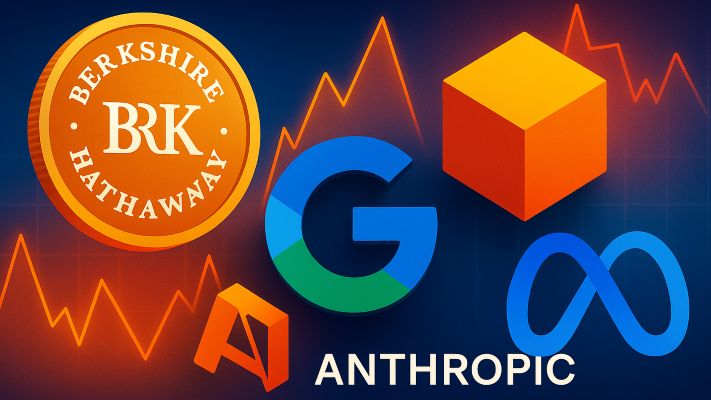AI Navigation
- articleAI Trends
- lightbulb_2AI Tips
- assistant_navigationAI Navigation
- heatHot Articles
- emergency_heat_2Hot Tips
- format_list_numberedPrompt Formatter
- psychologyTest Center(RPI)
November 22, 2025 · 24-Hour AI Briefing: Buffett Bets on Alphabet, Intel Admits Its AI Miss, Meta Unveils WorldGen
The past 24 hours brought three major signals reshaping the global AI landscape:
Buffett made a rare move by adding Alphabet to Berkshire’s top holdings;
Intel openly acknowledged falling behind in the AI race;
Meta introduced WorldGen, a system capable of generating explorable 3D worlds from a single text prompt.
Together, these events outline three core themes of today’s AI transformation: value-driven capital shifts, supply-chain realignment, and the rise of AI-generated virtual environments.

Buffett Bets $4.3B on Alphabet: A Vote for “AI-Era Predictable Tech”
Berkshire Hathaway purchased $4.3 billion worth of Alphabet stock in Q3 2025, making it one of Berkshire’s top ten holdings. This is Berkshire’s most notable tech bet since Apple.
Commentary:
Buffett’s move is a powerful signal. Alphabet’s strength across ads, AI-enhanced search, and Google Cloud offers the kind of revenue visibility that fits the value-investing framework—unlike high-multiple giants such as Nvidia or Microsoft.
Alphabet’s P/E of ~22 remains far below its mega-cap peers, while its cash flow and competitive moats continue to deepen.
This is not merely portfolio rebalancing—it is a public vote of confidence in Alphabet’s resilience in the AI era.
Intel CEO Admits the Company “Missed the AI Wave”
Intel CEO Pat Gelsinger publicly acknowledged that the company has fallen behind in AI, and announced a strategic pivot to become a “core enabler of the global AI supply chain.”
Commentary:
Intel’s long-standing focus on CPU + software optimization caused it to underestimate the breakthrough momentum of GPUs, NPUs, and domain-specific accelerators.
While Nvidia locked developers into CUDA, Intel was still pitching Xeon for large-model workloads.
Compounding the problem, Intel’s lithography delays left Intel 4 / Intel 3 trailing TSMC by two to three generations, prompting major AI customers to migrate toward AMD, Nvidia, or in-house chips.
In today’s AI ecosystem, the strategic power triangle is clear:
TSMC + Nvidia + hyperscalers.
Without regaining process leadership on cost and yield, Intel cannot reclaim supply-chain dominance.
Meta Releases WorldGen: A Single Prompt Generates Entire 3D Worlds
Meta introduced WorldGen, a system capable of producing fully explorable, interactive, physics-aware 3D environments within minutes from a single text prompt.
Commentary:
WorldGen signals Meta’s official entry into AI-driven 3D content generation.
Unlike image generation, 3D world creation is foundational for intelligent agents, AR/VR environments, gaming, and eventually the Metaverse.
Zuckerberg appears to be shifting from “social VR metaverse” to “AI-generated lightweight virtual worlds,” moving from manual modeling to intent-based generation.
While today’s worlds fall short of AAA engine fidelity, WorldGen may represent the earliest form of a fully automated virtual-world production pipeline.